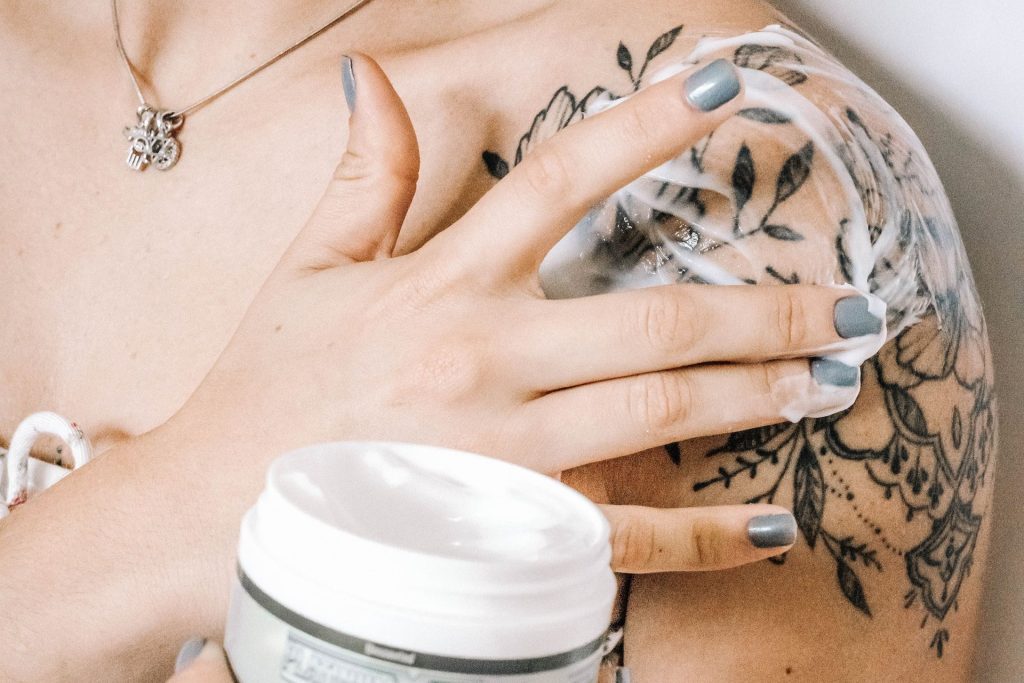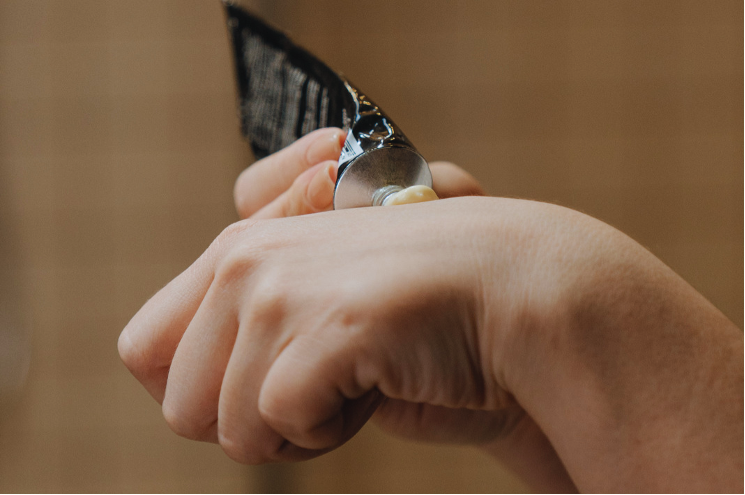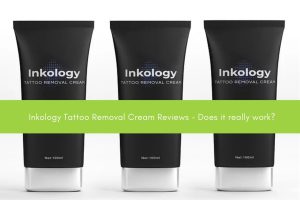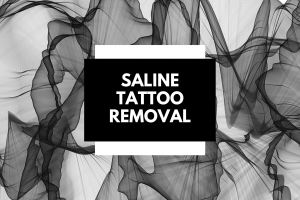
A tattoo removal cream is a kind of cream which promises to erase tattoo ink. Many brands manufacture and supply tattoo removal creams and they are available in departmental stores and online retails. However, contrary to their claims, there is little to no evidence that these tattoo removal creams actually help in removing tattoos. Many of these creams do not even promise to erase tattoo ink completely; they just help tattoos look lighter and less noticeable.
These tattoo removal creams also bring multiple serious side effects. The cream bleaches and scrapes the upper cells of epidermis in order to fade the tattoo ink, using different acids and other harmful substances, thus harming the skin in different degrees.
Does Tattoo Removal Cream Work
No, tattoo removal cream doesn’t work. They cannot erase the tattoo ink. It might lighten the tattoo to some extent, but can never fully remove it.
While the tattoo ink is injected in the deeper layer of the skin (dermis), these tattoo removal creams only work on the surface level, thus at best, causing only lightening of the inked region. The substances in the cream consist of hydroquinone, along with other injurious chemicals. Hydroquinone functions as a bleaching agent, which lighten the tattooed region.
Also, there are tutorials and instructions which promote DIY (homemade) tattoo removal creams, claiming that these creams are totally natural and effective. The natural ingredients include – lemon juice, salt, sand, neem oil, etc. These natural substances, too, can cause skin issues. Lemon juice, for example, can lighten skin temporarily, but is highly acidic in nature, and reacts when exposed to sunlight, resulting in hyperpigmentation.
Natural tattoo removal creams have also not shown any evident results in tattoo removal.
How to use Tattoo Removal Cream
Most tattoo removal creams set a regime that customers are supposed to follow.
The steps are:
- Clean the inked region before applying the cream
- Apply the cream twice a day
- Regular application is must for months
Possible Side Effects of Tattoo Removal Cream
Tattoo removal creams are not approved by the Food and Drug Administration (FDA). These creams include injurious chemicals like Tricholoroacetic Acid (TCA). This chemical is an active agent, causing skin to peel and shed, allowing the body to replace the area with new skin cells.
Side effects include:
- Skin burn
- Rashes
- Permanent scarring
- Inflammation
- Skin discoloration (permanent/temporary)
- Skin Peeling
- Blisters
Along with skin problems, if someone is allergic to any substance in the cream, it can be life threatening. Some serious conditions include:
- Anaphylaxis
- Nausea
- Chronic hives
- Vomiting
- Difficulty in breathing
Popular Tattoo Removal Creams and their Effectiveness

Although tattoo removal creams pose threat to skin and is not effective, there are many people who believe that they really work. The promises made to audience under the banner of terms such as “natural”, “quick”, “low priced”, and “effective” helps in marketing and selling them.
The creams might help making the tattoos fade to some extent as it works only on the surface level of the skin. Fading of the ink depends on the age of the tattoo. If the tattoo is comparatively older, it has most probably lost some pigments already, leaving ink in the deeper layers of the skin. The cream cannot reach these layers, making it difficult for the tattoo ink to get removed.
Some famous tattoo removal creams are:
1. Inked Up Tattoo Removal Cream
This cream promotes itself as a fast working cream with natural ingredients. This one is not very harmful to the skin like many other tattoo removal creams. However, all it can do is fade the ink to a certain degree.
2. Tattoo Destroyer
Neem oil is this cream’s primary component, which can sometimes irritate the skin and eyes. People with sensitive skin can face skin disorders like eczema.
3. TatB Gone
TatB Gone cream is a two step technique. The two creams that are included are – “activator” cream and “infusion” cream. The activator cream prepares the inked region for the “infusion”. This supposedly helps in fading of the tattoo faster than usual. However, customers have not found desired results.
4. Wrecking Balm Tattoo Fade
This kit consists of a microdermabrasion applicator, suffusion gel, hydravescent cream and a butter concealer for quick concealing for any occasion. It takes time to show results. And the effectivity of this cream depends greatly on the age of the tattoo. According to many customer reviews, this cream is not very effective, showing very little to no results.
5. Inkology
This too consists of corrosive chemicals like TCA, hydroquinone, phenoxyethanol and chromabright. TCA harms the skin and phenoxyethanol causes damage to the central nervous system. Many customers were dissatisfied for not receiving desirable results.
6. TCA Home Skin Peel Kit
This solution is extremely acidic in nature, and thus the kit comes with a pair of gloves in it. The acidic solution is advised to be applied with the help of a q-tip for additional safety purposes. It is also advised to maintain gaps in between days of application. Applying this peel sometimes causes temporary side effects like redness, burning and skin irritation. Customers have not received satisfactory results.
Even if the tattoo removal creams pose as great alternatives, enticing customers with “low price” and “effective solution” baits, it is always clever to avoid such creams.
Alternative to Tattoo Removal Creams
There are many tattoo removal procedures in current times, laser tattoo removal being the most popular amongst them. A tattoo removal procedure like laser tattoo removal is the most trusted and effective removal process in recent times. A laser tattoo removal should be executed only by experts who follow proper guidelines and advise before and after care routines that should be followed.
For a tattoo removal, there is an array of factors that are important and should be discussed with the tattoo removal technician to avoid severe harm in the future. Factors like age of the tattoo, complexity and colors of tattoo, medical health of the person, allergies, etc. play a big role in the tattoo removal process. Avoiding consultation with the laser technician regarding these factors before starting off with the removal sessions might result in dangerous temporary or permanent skin conditions.




